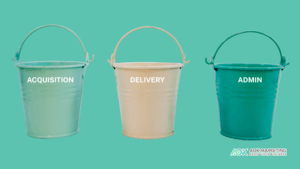Starting an ecommerce business in 2024 offers incredible opportunities, with online shopping more popular than ever. Whether you’re selling physical goods, digital products, or services, the global ecommerce market is thriving. According to recent projections, ecommerce sales are expected to exceed $7 trillion globally by 2024, making it a prime time to jump into this lucrative space. However, starting an ecommerce business requires careful planning, smart decisions, and a clear understanding of modern tools and platforms. This guide will walk you through the essential steps to help you succeed in launching your ecommerce business in 2024.
1. Choose Your Niche and Products
The first step in starting an ecommerce business is deciding what to sell and identifying your target market. Your niche defines the segment of the market you will cater to. It’s important to choose a niche that not only interests you but also has market demand. Start by researching current ecommerce trends for 2024, such as eco-friendly products, sustainable fashion, health and wellness items, or tech gadgets. Using tools like Google Trends, Amazon Best Sellers, and competitor analysis will help you validate demand for your niche.
Tips for Choosing Your Niche:
- Focus on a specific audience and avoid trying to appeal to everyone.
- Look for gaps in the market where you can offer something unique.
- Check the profitability of your chosen niche by calculating potential costs and revenue.
2. Research and Analyze Competitors
Understanding your competition is key to standing out in the ecommerce space. Conduct a competitive analysis to learn what your competitors are doing right and where they are falling short. Analyze factors like product offerings, pricing strategies, marketing tactics, and customer feedback.
Use tools such as SEMrush, Ahrefs, or SpyFu to analyze their traffic sources, keyword strategies, and paid advertising campaigns. This information will help you build a stronger ecommerce strategy that differentiates your business from others.
Questions to Ask in Your Competitor Analysis:
-Who are your top competitors?
-What marketing channels are they using to drive traffic?
-What are customers saying about them in reviews?
3. Develop a Business Plan
Creating a solid business plan is essential for organizing your thoughts, securing funding, and setting yourself up for long-term success. Your business plan should include a clear overview of your business goals, target market, products, marketing strategy, financial projections, and operational plans.
Key Elements of a Business Plan:
Executive Summary: A snapshot of your business, including its purpose and what it will offer.
Market Research: Insights into your target audience, competitors, and market trends.
Marketing Plan: Outline how you will attract and retain customers through various marketing strategies (social media, SEO, paid ads).
Financial Plan: Include startup costs, expected revenue, and expenses for the first year.
4. Select Your Ecommerce Platform
Choosing the right ecommerce platform is crucial for your business’s functionality and scalability. Platforms such as Shopify, WooCommerce, BigCommerce, and Wix are popular in 2024, each offering different features, customization options, and integrations. Your choice will depend on your business needs, budget, and technical expertise.
Top Ecommerce Platforms for 2024:
Shopify: Known for its ease of use, Shopify is ideal for beginners and comes with hundreds of customizable templates.
WooCommerce: If you’re comfortable with WordPress, WooCommerce is a flexible, open-source option that allows greater control.
BigCommerce: Great for larger businesses with complex needs, BigCommerce offers advanced functionality and scalability.
Wix Ecommerce: Easy-to-use website builder with ecommerce functionality for small to medium-sized businesses.
5. Set Up Your Storefront and Website
Once you’ve chosen a platform, it’s time to design and launch your online storefront. Your website is the face of your business, so it should be user-friendly, mobile-responsive, and optimized for search engines (SEO). In 2024, most shoppers browse and buy products on their phones, so having a mobile-optimized site is critical.
Key Features for an Ecommerce Website:
Intuitive Navigation: Make it easy for users to find products, categories, and information.
Clear Call-to-Actions: Guide users to take actions like “Shop Now,” “Add to Cart,” or “Sign Up.”
High-Quality Product Images: Invest in professional images to showcase your products effectively.
Fast Loading Speed: Slow websites can increase bounce rates. Optimize images and use performance-enhancing tools.
SEO Optimization: Incorporate relevant keywords in product descriptions, meta tags, and titles to improve your site’s ranking.
6. Set Up Payments, Shipping, and Legalities
After your website is designed, it’s time to integrate payment gateways, set up shipping options, and ensure your business complies with legal regulations.
Payments: Choose payment gateways like Stripe, PayPal, Square, or Shopify Payments to offer secure, convenient payment options. Make sure you can accept credit cards, debit cards, and digital wallets.
Shipping: Offer a variety of shipping options such as standard, express, and international shipping. Partner with reliable couriers like UPS, FedEx, or DHL for fast and secure delivery. Consider dropshipping or fulfillment centers if you want to outsource logistics.
Legal Considerations:
-Register your business, secure the necessary licenses, and check the tax regulations in your country.
-Make sure you have a clear privacy policy, terms and conditions, and return policy on your website.
7. Implement a Marketing Strategy
To succeed in ecommerce, you’ll need a comprehensive marketing plan to drive traffic to your site and convert visitors into customers. In 2024, omnichannel marketing is crucial—leveraging multiple platforms like social media, email marketing, and paid ads to reach your audience.
Marketing Strategies for 2024:
Search Engine Optimization (SEO): Invest in SEO to rank higher on Google for relevant keywords. This includes optimizing your product pages, writing quality blog content, and securing backlinks.
Social Media Marketing: Platforms like Instagram, TikTok, and Pinterest are essential for ecommerce businesses. Build your presence by posting regularly, using influencer marketing, and running social ads.
Email Marketing: Build an email list and send regular newsletters, product launches, and exclusive discounts to your subscribers.
Paid Ads: Use Google Ads, Facebook Ads, and retargeting ads to attract customers and drive conversions.
8. Optimize for Growth and Scale
Once your ecommerce business is up and running, it’s important to continually optimize your website, marketing, and customer experience. Use analytics tools like Google Analytics, Hotjar, and your platform’s built-in metrics to track performance.
Strategies to Scale Your Ecommerce Business:
Customer Reviews and Feedback: Encourage customers to leave reviews, as they influence purchasing decisions. Use feedback to improve your products and services.
A/B Testing: Continuously test and optimize different elements of your website, such as product descriptions, CTAs, and checkout processes.
Expand Product Lines: Once you’ve established a loyal customer base, consider expanding your product offerings to increase revenue streams.
International Expansion: If you’ve found success locally, consider expanding into international markets by offering worldwide shipping.
Conclusion
Starting an ecommerce business in 2024 is an exciting opportunity that offers vast potential. However, it requires careful planning, the right tools, and a strong marketing strategy. By choosing a profitable niche, selecting the right ecommerce platform, and implementing effective marketing tactics, you can build a successful and sustainable business. Remember, ecommerce is a marathon, not a sprint, and continuous optimization and growth strategies will help you thrive in this dynamic industry.
About The Author
Khalid Essam
Khalid is the Chief of Staff at AOK. He collaborates with a team of specialists to develop and implement successful digital campaigns, ensuring strategic alignment and optimal results. With strong leadership skills and a passion for innovation, Khalid drives AOK’s success by staying ahead of industry trends and fostering strong client and team relationships.







